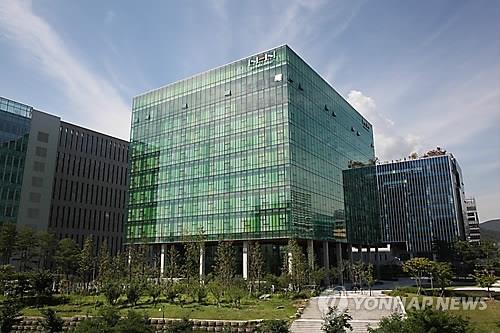For Korea and China, the online game market is not only a new stage for strategic partnerships but also an emerging battlefield.
Chinese firms, armed with massive capital, are rushing to Korea known for its advanced tech industry.
It provides some local developers with a much-awaited investment but poses a 'life-or-death' threat to smaller ones in a war of money, market watchers say.
Earlier this week, NHN Entertainment, a Korean internet giant, announced plans to sell a 19.24-percent stake in its video game developing arm Webzen to Chinese rival Ourpalm.
 |
NHN Entertainment headquarters (Yonhap) |
With the trade, worth around 200 billion won ($160 million), Ourpalm has become the second-largest shareholder in Webzen.
Tencent, a top Chinese mobile game company, is the front-runner in tapping into the Korean market.
It has invested 530 billion won in Netmarble Games, 130 billion won in 4:33 Creative Lab and 20 billion in PATI Games.
For some Korean firms, such aggressive investments by their Chinese counterparts are an opportunity. For others, however, they may turn out to be black knights.
Concern has grown about the leak of technology and manpower as well as hostile takeover bids. In 2004, then-Korean PC game developer Actoz Soft was sold to Shanda Games of China and many of its employees reportedly lost their jobs.
Entrepreneurs cite the reality.
"We needed at least 500 billion won but there was no investor to afford that (in Korea). So we chose Tencent," Bang Joon-hyuk, head of Netmarble Games told reporters recently.
Capitalizing on the funding from Tencent, his company has positioned itself as the No. 1 mobile game firm in Korea.
A game industry source also said, "Chinese capital may serve as a 'knight on a white horse' for some domestic firms short of ammunition." (Yonhap)





![[KH Explains] Samsung chief says he is still ‘hungry’ for foundry growth](http://res.heraldm.com/phpwas/restmb_idxmake.php?idx=644&simg=/content/image/2024/10/08/20241008050604_0.jpg)


